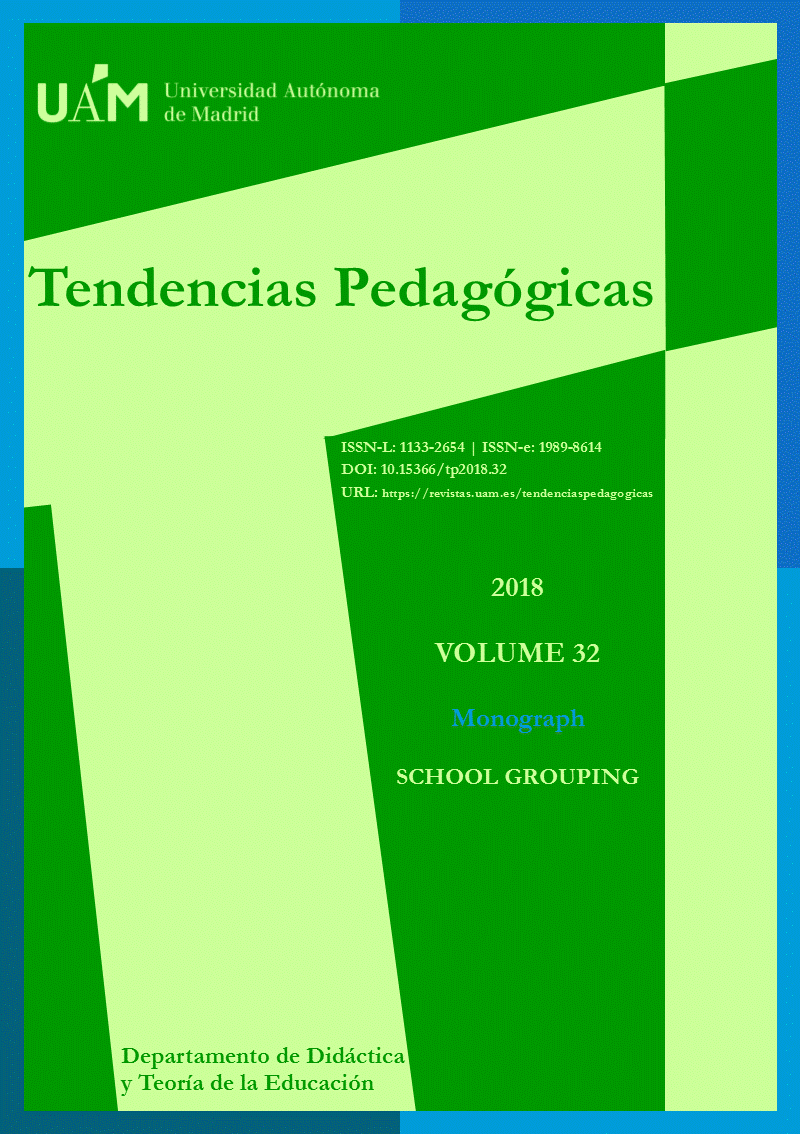Gathering and organization of volunteering in Learning Communities: keys from the perspective of the management team
Keywords:
learning communities, management team, interactive groups, early childhood education and primary educationAbstract
This article analyzes the vision of the Management Team (school principal, head teacher and secretary) on the volunteering coordination and organization. The volunteers collaborate in interactive groups, tutorship in libraries and literary and pedagogical gathering in three centers from Andalusia (Spain) constituted in Learning Community (CdA ). These acts are considered as a form of gathering in CdA to improve the teaching-learning process. The methodology has been mixed, on the one hand, quantitative with Likert type questionnaire and, in the other hand, qualitative through an interview. The results highlight that the most successful proceedings are those that have more participation in the interactive groups.Downloads
References
Aguilar, C., Alonso, M. J., Padrós, M., & Pulido, M. A. (2010). Lectura dialógica y transformación en las Comunidades de Aprendizaje. Revista Interuniversitaria de Formación del Profesorado, 67(24,1), 31-44.
Aguilera, A., Gómez-del-Castillo, M. T., & Prados, M. M. (2014). Cuestionario de valoración de Comunidades de Aprendizaje por el voluntariado universitario (VAVU-CdA). Recuperado el 15 de enero de 2018 de: http://personal.us.es/aguijim/11_08_VAVU.pdf
Aguilera-Jiménez, A., Prados-Gallardo, M. M., & Gómez-del-Castillo, M. T. (2015). La experiencia del voluntariado universitario en las tertulias dialógicas de las comunidades de aprendizaje. REDU. Revista de Docencia Universitaria, 13(2), 249-267.
Aubert, A., Duque, E., Fisas, M., & Valls, R. (2004). Dialogar y transformar. Pedagogía crítica del siglo XXI. Barcelona: Graó.
Aubert, A. y García, C. (2001). Interactividad en el aula. Cuadernos de Pedagogía, 301, 20-24.
Bruner, J. (1988). Desarrollo cognitivo y educación. Madrid: Morata.
Chomsky, N. (1985). Knowledge of Language: Its Nature, Origins, and Use. New York: Praeger.
Dewey, J. (1926). Individuality and experience. Later works of John Dewey, II (pp. 55-61). Carbondale: Southern Illinois Universiry Press.
Elboj, C., Puigdellívol, I., Soler, M., & Valls, R. (2002). Comunidades de aprendizaje. Transformar la educación. Barcelona: Graó.
Flecha, R. y Larena, R. (2008). Comunidades de aprendizaje. Sevilla: Fundación ECOEM.
Flecha, A., García, R., Gómez, A., & Latorre, A. (2009). Participación en escuelas de éxito: una investigación comunicativa del proyecto Includ-ed. Cultura y Educación, 21(2), 183-196, DOI: 10.1174/113564009788345899
Formosa, M. y Ramis-Salas, M. (2012). El tiempo de aprendizaje más allá del aula. Cuadernos de Pedagogía, 429, 42-44.
Freire, P. (1997). A la sombra de este árbol. Barcelona: El Roure Ciencia.
Habermas, J. (1987). The Theory of Communicative Action. Vol. 2: Lifeworld and System: A Critique of Functionalist Reason. Boston: Beacon Press.
Includ-Ed Consortium (2011). Actuaciones de éxito en las escuelas europeas. Madrid: MECD.
Lastikika, A.L. & García, R. (2012). Participación de las familias en el currículo y en la evaluación. Cuadernos de Pedagogía, 429, 61-63.
Muntaner, J. J., Pinya, C., & De la Iglesia, B. (2015). Evaluación de los G.I. desde el paradigma de la educación inclusiva. Revista Electrónica Interuniversitaria de Formación del Profesorado, 18(1), 141-159.
Padrós-Cuxart, M., Duque, E., & Molina, S. (2011). Aportaciones de la investigación europea includ-ed para la reducción del abandono escolar prematuro. Revista de la Asociación de Inspectores de Educación de España, 14, 1-17.
Pardo Merino, A. & Ruiz Díaz, M. (2002). SPSS 11: Guía para el análisis de datos. Madrid: S.A. MCGRAW-HILL/Interamericana de España.
Valls, R., Soler, M. & Flecha, R. (2008). Lectura dialógica: interacción es que mejoran y aceleran la lectura. Revista Iberoamericana de Educación, 46. Recuperado el 8 de diciembre de 2017 de: http://rieoei.org/rie46a04.htm
Valls, R. & Kyriakides, L. (2013). The power of interactive Groups: how diversity of adults volunteering in classroom groups can promote inclusion and success for children of vulnerable minority ethnic populations. Cambridge Journal of Education, 43(1), 17-33. doi: 10.1080/0305764X.2012.749213
Vygostky, L. (1979). El desarrollo de los procesos psicológicos superiores. Barcelona: Crítica.
Yin, R. (1994). Case Study Research: Design and Methods. Londres: Sage Publications.

